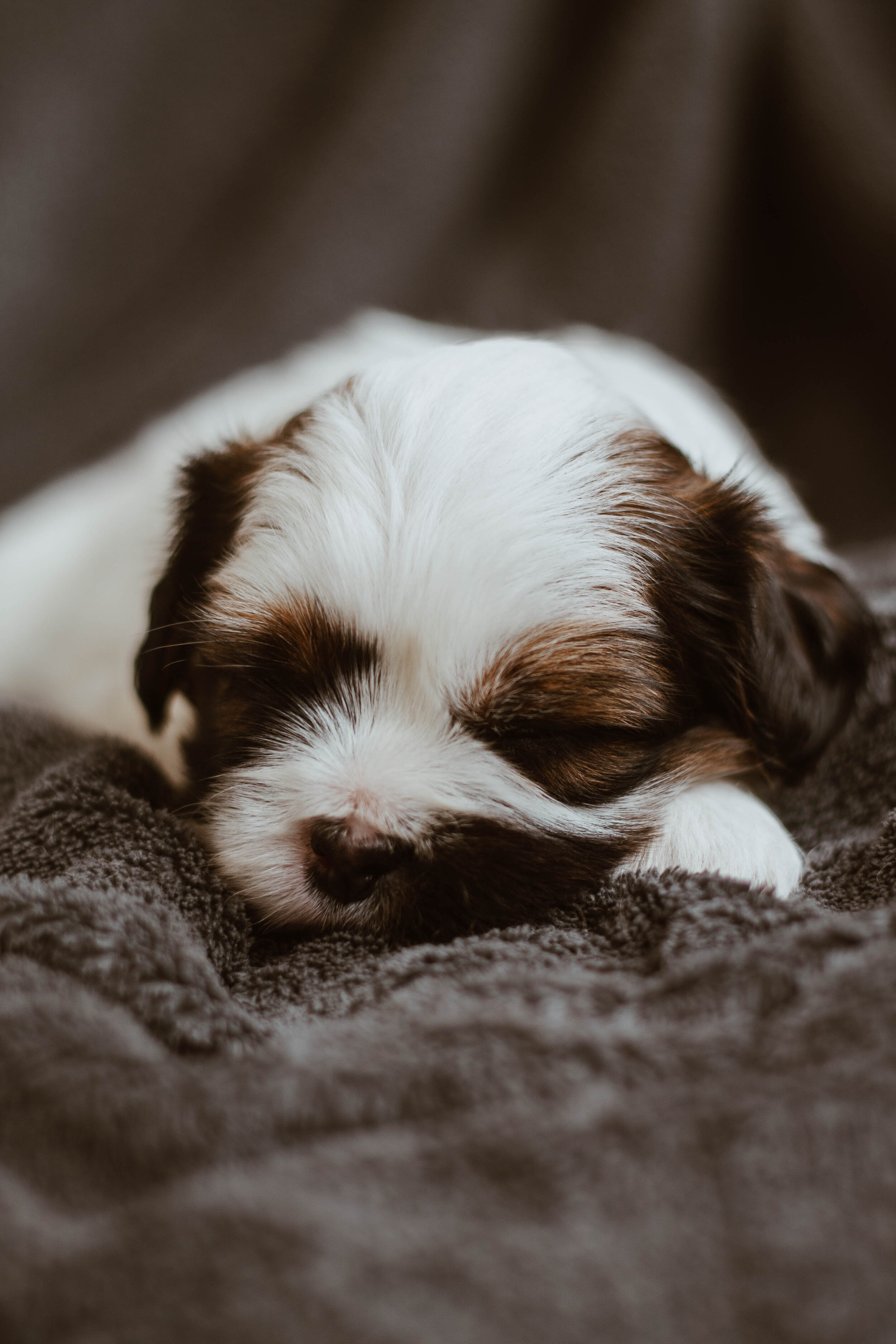The First Night With Your Puppy
It's completely normal for most puppies, and you, to feel a little uncertain on their first night at home with their new family.
After all, they are suddenly away from their mum and littermates and your home is full of new sounds, smells and sights. Different pups react in different ways on the first few nights – some are confident and are happy to simply go straight to sleep wherever you choose, but others are more sensitive, and need a lot more emotional security if they are to settle down.
First things first.
What you do during the daytime will have a big impact on how your pup behaves at bedtime.
During the daytime:
Don't allow your puppy to constantly follow you from room-to-room. While it might be flattering to have a little shadow, it can create over-attachment, and it's unrealistic to expect a puppy to be with you constantly during the day only to be suddenly separated from you for 7 hours during the night. Use a baby gate to create a little distance between you even when you are in the house and moving from room to room– and close the door when you are in the bathroom!
Make sure your pup has a bed of their own, or a comfortable crate or pen area, with snuggly blankets/bed inside. Your new puppy will need a lot of sleep – even during the day – and typically this allows you to have 6 or 7 practise sessions before night falls. So, during the day when your puppy falls asleep, pick them up and put them in their bed, pen or crate – and then leave them there. This way it won't be a shock to be left in bed when it comes to bedtime. Position the bed or crate where you will want the dog to rest at night. Make sure the bed is comfy, warm, and in a quiet place and that they have access to water. Puppies always need access to water as they are not very good at understanding when they are thirsty or not which makes them more susceptible to dehydration.
Give your pup sufficient mental stimulation and physical exercise during the day, so that he or she is ready for bed at night. Make sure they have been to the toilet last thing – stay out there with him or her until you know they have been. Do not allow your pup to become over-stimulated or excited before bed – just like kids, they can then find it difficult to calm down and go to sleep.
The sleep set-up: Although it's traditional for dogs to sleep downstairs in the kitchen on their own, many puppies find this sudden separation very upsetting, and may cry, howl, bark or become distressed. It's also a nightmare if you have young children, or near neighbours! For most pups, sleeping nearer their owners in the first couple of weeks eases the transition and helps them to feel secure – it also means that you can hear when they need to go out to go to the toilet (most young pups can't make it all the way through the night) – which means you can get up and take them out – which helps their house training too.
A crate or dog bed in your bedroom, or just outside in a hallway for example, can work really well. You can always move this little by little to where you would prefer your dog sleeps, over a period of days or weeks. Sleeping near you doesn't mean sleeping under the duvet though – your dog should have their own bed or be in a comfy crate for safety.
Bedtime routines:
Try to establish a bedtime routine quickly and then stick to it so that your pup starts to predict it.
The last hour should be calm and quiet, with a very short calm training session.
Take your pup outside to the toilet, stay with him or her to make sure he has been.
Take your pup to their bed and settle them down. For some very small or worried pups, putting the crate up on a surface level with your bed means they can see you as well as hear you when you are lying down. Provide a chew or semi-filled Kong and leave them be.
Some owners swear by a heated pad or hot water bottle for new pups, and a ticking clock to represent their mother's heartbeat.
If your pup wakes in the night, get up and take them out to the toilet. Praise gently if the go, but don't be too exciting. Don't play with them, allow them to play outside, or stay up with them downstairs if they don't seem ready to go back to sleep.
Pop puppy back into their crate or bed, speak soothingly, but resist the temptation to pet them or allow them in the bed (if that isn’t what you want long-term)– or you may find they crave attention at 2am every night!



